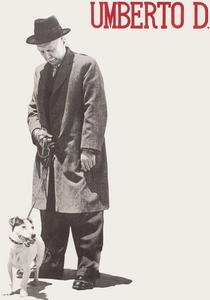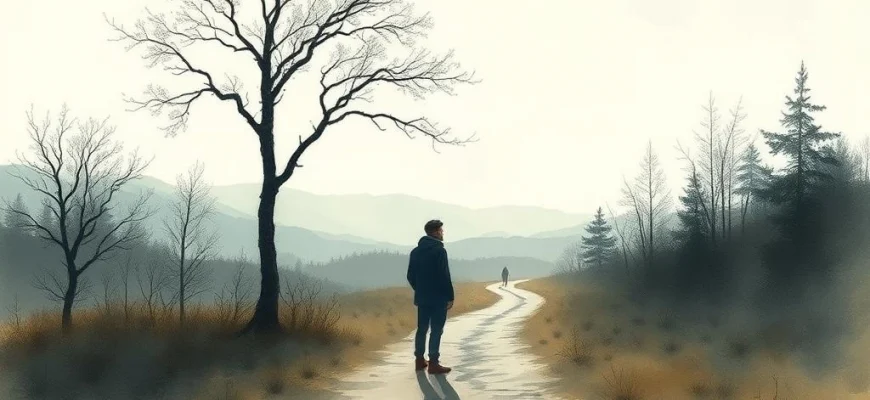If you were moved by the profound introspection and emotional depth of 'Ikiru' (1952), you'll love these 10 similar films and shows. This article explores stories that, like Akira Kurosawa's masterpiece, delve into themes of mortality, purpose, and the human condition. Whether you're seeking more thought-provoking cinema or simply want to experience similar storytelling brilliance, this list is for you.

Bicycle Thieves (1948)
Description: A moving story about the fragility of human dignity and the struggles of ordinary people, told with a raw and unflinching realism that highlights the emotional weight of everyday life.
Fact: It was one of the first films to be shot entirely on location, using non-professional actors.
 Watch Now
Watch Now 
Late Spring (1949)
Description: A subtle and deeply emotional film that examines the quiet sacrifices and unspoken tensions within a family, particularly between a father and daughter.
Fact: The film is part of a trilogy that explores post-war Japanese society through the lens of family relationships.
 Watch Now
Watch Now 
Umberto D. (1952)
Description: A heart-wrenching portrayal of loneliness and dignity in old age, focusing on the struggles of an elderly man trying to maintain his sense of self-worth in a changing world.
Fact: The film was initially criticized for its bleak portrayal of post-war Italy but is now considered a masterpiece of neorealism.
 Watch Now
Watch Now 
Tokyo Story (1953)
Description: A poignant exploration of family dynamics and generational gaps, focusing on the quiet, introspective moments of life and the inevitability of aging.
Fact: Often cited as one of the greatest films ever made, it was inspired by Leo McCarey's 'Make Way for Tomorrow' (1937).
 Watch Now
Watch Now 
Ugetsu (1953)
Description: A lyrical and melancholic tale that blends the supernatural with human desires and regrets, exploring the ephemeral nature of life and the consequences of ambition.
Fact: The film won the Silver Lion at the Venice Film Festival and is considered a masterpiece of Japanese cinema.
 Watch Now
Watch Now 
Sansho the Bailiff (1954)
Description: A tragic and deeply humanistic story about suffering, resilience, and the enduring power of compassion, told with a profound sense of empathy and visual beauty.
Fact: The film is based on a medieval Japanese folk tale and has been praised for its emotional depth and historical authenticity.
 Watch Now
Watch Now 
The Cranes Are Flying (1957)
Description: A visually stunning and emotionally powerful film that captures the personal and collective trauma of war, focusing on love, loss, and the resilience of the human spirit.
Fact: It was the only Soviet film to win the Palme d'Or at the Cannes Film Festival during the Cold War.
 Watch Now
Watch Now 
The Seventh Seal (1957)
Description: A deeply philosophical film that grapples with existential questions, mortality, and the search for meaning in life, presented through a stark and contemplative narrative.
Fact: The iconic imagery of a knight playing chess with Death has become a symbol of existential cinema.
 Watch Now
Watch Now 
The Ballad of Narayama (1958)
Description: A haunting meditation on tradition, mortality, and the cyclical nature of life, presented with a stark and poetic visual style.
Fact: The film uses Kabuki theater techniques to enhance its dramatic and symbolic storytelling.
 Watch Now
Watch Now 
High and Low (1963)
Description: A gripping moral drama that delves into themes of class disparity, justice, and personal responsibility, told with a meticulous and suspenseful narrative style.
Fact: The film is based on an American crime novel, 'King's Ransom' by Ed McBain.
 Watch Now
Watch Now 








